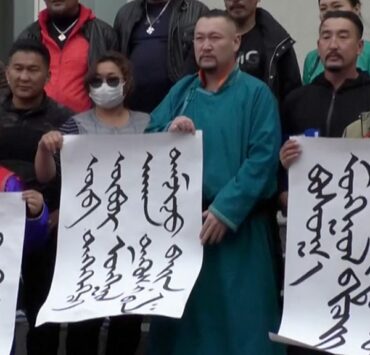PARPCC #9 Surveiller (beaucoup) et servir (un peu) : le guichet unique de l’administration chinoise à votre porte

Panda, Alcool de Riz et PCC est une colonne de Camille Brugier, visant à introduire des articles scientifiques à une audience plus large. Ses publications sont à retrouver sur son fil Twitter.
[/vc_column_text][vc_empty_space][/vc_column][/vc_row][vc_row][vc_column width= »1/2″ alignment= »center »][thb_image alignment= »aligncenter » image= »24653″ img_size= »medium »][/thb_image][/vc_column][vc_column width= »1/2″][vc_column_text]Elle existe depuis plus de vingt ans et a fait beaucoup parlé d’elle pendant la pandémie de Covid-19: la « gestion en réseau » de l’administration chinoise – comprenez la présence de personnes-contacts représentant l’Etat dans votre quartier – a marqué les esprits. On se rappellera ces personnes posant des verrous aux portes des immeubles pour confiner leurs occupants et envoyant des SMS indiquant le prolongement des mesures sanitaires. Très décrié sur les réseaux sociaux en Chine, ce système de « gestion en réseau », s’il permet d’apporter des services publics au plus près de la population, favorise surtout une surveillance accrue des individus.
[/vc_column_text][/vc_column][/vc_row][vc_row el_id= »Sujet1″][vc_column][vc_empty_space height= »46px »][thb_title style= »style5″ title= »Surveiller (beaucoup) et servir (un peu) : le guichet unique de l’administration chinoise à votre porte »][vc_empty_space height= »16px »][vc_column_text]Depuis presque 20 ans, la Chine se construit un nouveau modèle de relations Etat-citoyens : la « gestion en réseau » (网格化管理, ou « grid management system » en anglais). Elle nomme des personnes-contacts de l’Etat au plus près des citoyens, que ce soit pour résoudre un problème de voisinage, trouver une école pour un enfant, etc.
Ce système a été testé dès 2004, mais ce n’est qu’avec la pandémie de Covid-19 que le Parti s’est rendu compte de son utilité …comme moyen de surveillance.
La « gestion en réseau » découpe la Chine en sections d’environ 10 000m2 (soit presque deux terrains de foot) qui comprennent en moyenne 700 personnes (soit la population de Pont l’Evêque, capitale du street-art de l’Oise). C’est donc un vaste réseau : pas moins de 300 000 contacts pour la province du Jiangsu, qui compte 80 millions d’habitants !
Les membres du réseau sont recrutés pour leur connaissance de l’appareil administratif, leur loyauté et leur lieu de résidence (ils seront préférablement « du coin »). Rassemblés en équipe, ils font travailler des administrations (police, justice, sécurité sociale…) qui fonctionnent d’ordinaire en silos, et cherchent à favoriser les échanges entre niveaux de gouvernement via notamment des plateformes de partage d’informations.
La « gestion en réseau » est comme un guichet unique gonflé aux stéroïdes : ses membres doivent faire de la surveillance et aider la population à accéder aux services publics. Les personnes-contacts organisent les patrouilles de police, collectent des données sur la satisfaction d’usagers, etc. Une fiche de poste mentionne même 135 tâches à effectuer !
Avec ce système, Pékin souhaite gouverner sur la base de données « fines » (géolocalisées, etc). L’Etat central voile à peine les objectifs de « renseignement » du réseau : une fiche de poste mentionne parmi les tâches attribuées « l’identification des dangers cachés » par exemple.
Alors, bonne ou mauvaise idée ? Mittelstaedt ne tranche pas, mais souligne deux caractéristiques de ce système :
2) alors que partout on innove en matière de démocratie participative, le système chinois montre que gouverner localement ne veut pas dire gouverner avec les locaux. Le réseau se rajoute à l’administration existante mais ne s’appuie pas sur la société civile ou sur les habitants. Pour l’auteur, on parle donc d’un nouveau management localisé, et pas du tout de gouvernance locale.
2) Comme dans toute politique locale chinoise (on ne le dira jamais assez), il n’y a pas deux « réseaux » identiques. A l’origine, deux projets-pilotes (à Dongcheng et Zhoushan) mettaient l’un l’accent sur la sécurité, l’autre sur les services publics aux familles.
En bref, le PCC réinvente sa façon de traiter avec ses citoyens. Mais quand on crée quelque chose, le résultat peut être très différent de ce qui était escompté. Même dans un régime autoritaire.
Référence: Mittelstaedt, Jean Christopher (2022), “The grid management system in contemporary China: Grass-roots governance in social surveillance and service provision”, China Information, 36(1), pp. 3-22.
[/vc_column_text][vc_empty_space][/vc_column][/vc_row]


